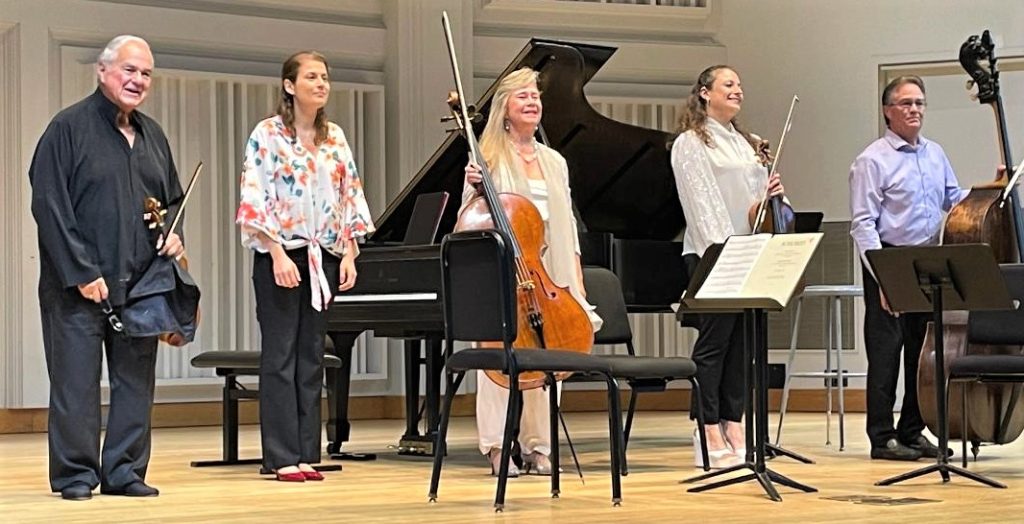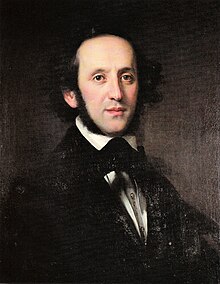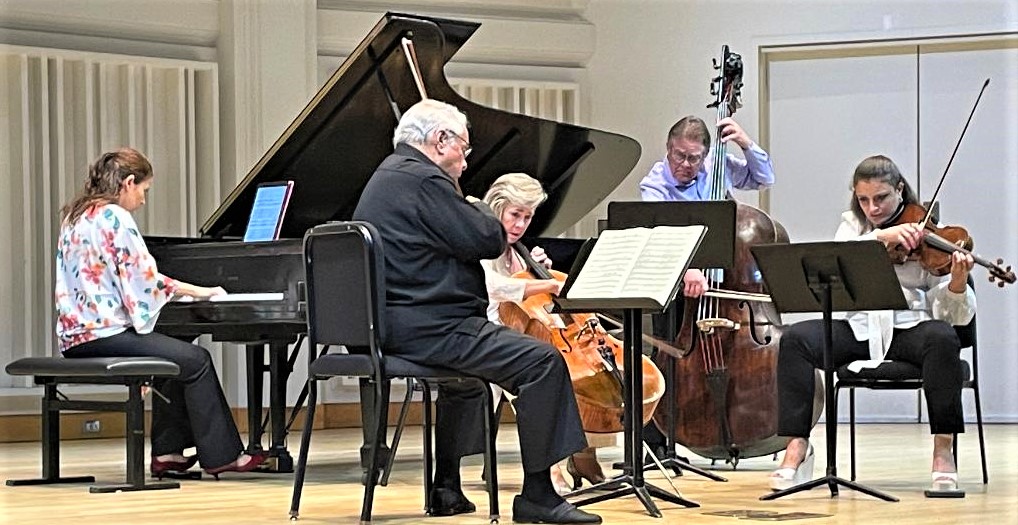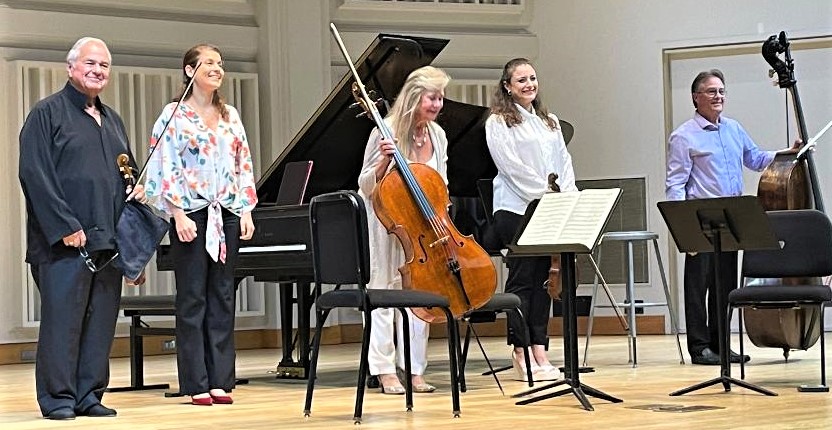
by Kevin T McEneaney
Last Saturday Espressivo! quartet at Bard College Olin Hall opened with Piano Quartet No.in C Minor (1821-22); written at the age of thirteen, this was Felix Mendelssohn’s first published composition (1823). Felix had performed his first public concert at the age of nine. At thirteen he had performed with the noted pianist Aloys Schmitt, although there was no pressure or expectation that he would become a professional musician, even though by the age of eleven he had composed sixty short pieces. At the age of twelve, he wrote five string quartets, an opera, and a motet.
Since Mendelssohn has such a large body of work, his first quartet is rarely performed and this performance was a rare treat at the highest level of musicianship. In the opening Allegro Vivace sonata, the piano of Anna Polonsky announced that we were in for an exciting evening of music. From the beginning, there was an impressive interplay of instruments: Jaime Laredo on violin, his wife Sharon Robinson on cello, and Milena Parajo-Van de Stadt on vibrant viola.

In the much shorter Adagio that followed there was an impressive glow of lyrical beauty as if the audience was sailing on a communal boat and observing the rural landscape. The lively Scherzo that followed delighted all as Polonsky’s fingers flew like a waterfall across the keys and the viola of Van de Stadt rounded out the excitement. The concluding Allegro offered a balanced interweaving of instruments, concluding with a shout of eclat that declared musical joy in this moment and a promise of many such moments to come in the composer’s short lifetime.
Written before Williams studied under Maurice Ravel in Paris, the opening movement of Quintet in C Minor (1903) sounds like a symphony heavily influenced by Johannes Brahms. Harold Robinson’s double bass lent a gravity that leaned toward an epic sound, although it seemed to me like a furious orchestral exercise that went nowhere. I suspect that the first movement was an attempt to celebrate the great city of London, something that he marvelously accomplished later in his A London Symphony (1911-13). Polonsky thundered at the keyboard with finesse and the other four players were resonant and clear with decisive unity, yet the work lacked pointed direction.

The following Andante delivered the distinctive voice of Williams musing about the English rural landscape in stops and starts, as if he projected a musical slideshow of streams, hills, flowers, and glens. Here was lyrical beauty where the double bass of Harold Robinson invoked forest growth, the musing viola of Milena Pajaro-Van de Stadt shed sunlight as Anna Polansky on piano charted running rivulets over pebbles, while the cheerful passing of puffy, cumulus clouds emanated from Van de Stadt’s viola as Laredo’s violin pointed out special plants. This movement offered a prophecy of Williams’ later work.
The concluding Fantasie appeared to begin with a nostalgic reflection on the sincerity of youthful religious beliefs, evoking the Sanctus, Our Father, and reflecting a measure of repentance for the unnamed sins of young adulthood through variations on the early Christian theme of the Kyrie motif. (The Kyrie, a Greek melody, is the oldest known Christian liturgical music.) This last movement delivered such empathy that it could induce eye-welling as the quintet played with such poignancy!
Franz Schubert’s Die Forelle (“The Trout”), Op. 32, D. 550 (1817) derives from a 1783 poem by Christian Schubert (written in prison for insulting a Duke’s mistress) opened in the second half. Franz Schubert was informed by a friend that he unconsciously copied a melody from Beethoven, and upon reflection, Schubert decided to destroy the work, yet friends prevailed upon him to keep the composition. The popular folksong offers a jocular allegory about the dangers of sex. Schubert’s treatment only covers the first three verses of the poem, omitting the moral warning to women about how an affair with a man could possibly lead to death. (Some Samsung washing machines and dishwashers play Schubert’s melody to let one know the cycle is complete.)
There were no AI washing machines on stage: there were merely five Seraphim with their heavenly instruments simultaneously working through the rhythmic variations of Schubert’s most popular work, which I have heard so many times that I can no longer count, yet this is the performed version that lingers and will remain in my mind!
The rural ambiance of the performance shone like Spring sunlight glinting off a river current as Polonsky raced eloquently over foaming stones as the shoreline featured majestic oaks and linden trees from Harold Robertson’s double bass, flowering shrubs from Sharon’s cello, colorful petunias from Van de Stadt’s viola, and lastly but not least, spiky tulips from Jaime’s violin!
The audience demanded three bows.
